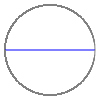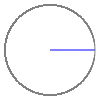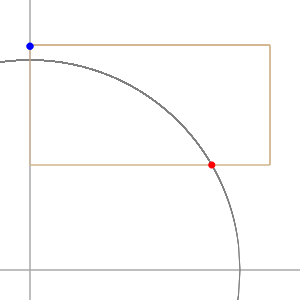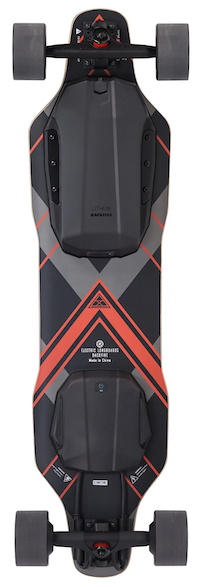Transition Radius Geometry
The diameter of a circle is the distance across the middle.

The radius of a circle is half of the diameter, or the distance from the center of the circle to its border.

The equation of a circle that is centered at the origin .png) and has a radius of
and has a radius of  is given by:
is given by:
.png) and has a radius of
and has a radius of  is given by:
is given by: 
To make the transition side piece for a ramp, start with a rectangular piece of plywood and follow the edge of part of a circle. The radius of this circle is known as the transition radius of the ramp.

Suppose you are building a ramp 3 feet 6.5 inches high, with a 7 foot transition radius. You only have 22 feet of space, and want to calculate the maximum possible flat bottom length.
Note: The ramp's total height will be 4 feet if you include the 5.5 inches that the flat bottom is above the ground.

The plywood is positioned on the diagram above by setting the top left corner to where the blue dot is, 5.5 inches above the highest point of the circle. Hence the y value at this point is 7.46 ( 7 feet + 5.5 inches ). Our plywood is 4 feet wide, so we calculate the y value of the coping ( red dot ) by subtracting 4 from 7.46 to get 3.46, we can use the equation of a circle to calculate the value of x at this point:
^2 = 7^2.png)


![x [BS]approx 6.09 feet](images/x [BS]approx 6.09 feet.png)
Now we know that the transitions will contribute  feet to the length of the ramp, so there is
feet to the length of the ramp, so there is  feet left for the flatbottom and platforms.
feet left for the flatbottom and platforms.
 feet to the length of the ramp, so there is
feet to the length of the ramp, so there is  feet left for the flatbottom and platforms.
feet left for the flatbottom and platforms. ![max- flatbottom [BS]approx 9.82 feet](images/max- flatbottom [BS]approx 9.82 feet.png)

